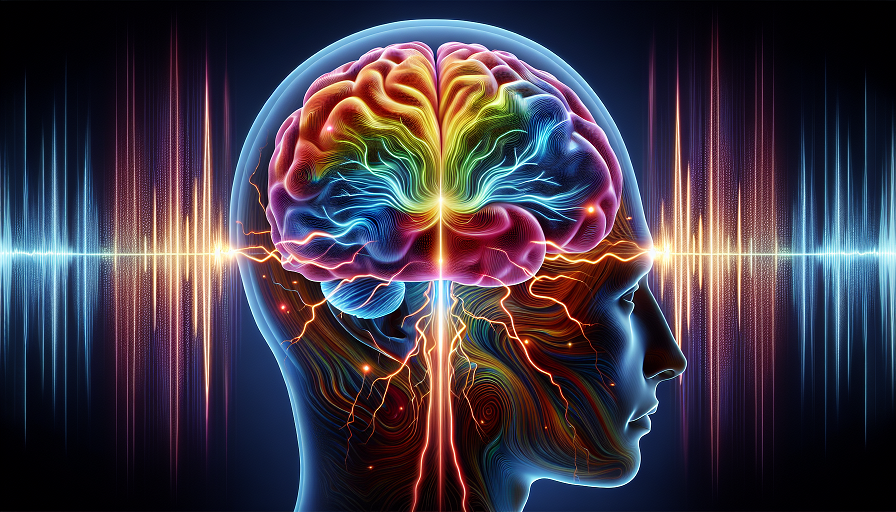
Our brains, much like the intricate system of roads and highways we rely on for travel, have many interconnected parts that work together to help us function every day. Two important players in maintaining our brain’s health are heart rate variability (HRV) and sleep cycles. These two factors may not seem related at first glance, but research is uncovering how interconnected they are and how they can impact our brain function. Here we explore these connections in a simple and accessible way, while also touching on the potential role of brain supplements and nootropics.
Contents
Understanding Heart Rate Variability
Heart rate variability, or HRV, is the variation in time between each heartbeat. Unlike our resting heart rate, which measures the average number of heartbeats per minute, HRV focuses on the intervals between these beats. So why is HRV important? Well, it turns out, HRV is a good indicator of our autonomic nervous system, which controls our body’s automatic functions that we don’t consciously think about, such as breathing and digestion.
A higher HRV is generally considered to be a sign of good health. It indicates that your body can adapt well to stress and is in a balanced state, ready to handle whatever comes its way. Conversely, a lower HRV can signify stress, fatigue, or even underlying health issues. Researchers have been studying how HRV not only impacts physical health but also plays a significant role in brain health and cognitive function.
The Role of Sleep Cycles
Now, let’s talk about sleep cycles. You might have heard about REM sleep, short for Rapid Eye Movement, but did you know that it is just one phase in our sleep cycle? There are actually several stages of sleep, each playing a unique and important role in our brain and body’s recovery. These stages range from light sleep, where our body starts to relax, to deep sleep, which is crucial for physical recovery, to REM sleep, which is essential for our brain’s mental recovery.
Interruption or poor quality of sleep can disrupt these cycles, leading to consequences such as impaired memory, difficulty concentrating, and slow cognitive processing. That is why understanding your sleep cycles can be a crucial part of ensuring you’re getting the rest your body and brain need to function at their best.
How HRV and Sleep Affect Brain Function
So how does heart rate variability connect with our sleep cycles and ultimately, brain function? Research suggests that there’s a fascinating link. Studies have shown that individuals with higher HRV tend to experience better quality sleep, as their bodies are better capable of reaching those deep and restorative phases of sleep.
Moreover, as our sleep improves, so does our brain function. Quality sleep enables our brain to process information efficiently, consolidate memories, and even remove toxins that accumulate throughout the day. Better sleep also supports emotional regulation and decision-making, ensuring our brain operates like a finely tuned machine. With a balanced HRV and healthy sleep cycles, your cognitive abilities are in top shape and ready for anything.
The Potential Role of Nootropics and Brain Supplements
With the spotlight on brain health, many people are turning to nootropics or brain supplements to give their cognitive abilities an extra boost. These substances are believed to enhance brain function, including improving memory, focus, and overall mental clarity. While results may vary among individuals, the idea is that by providing the brain with the right nutrients, these supplements could support better cognitive health.
Some popular nootropics include omega-3 fatty acids, ginkgo biloba, and caffeine. Omega-3s, for example, are essential fats that have been shown to promote brain health. In conjunction with proper sleep and maintaining a healthy HRV, these supplements could potentially support brain function, though it’s important to approach them as a complementary tool rather than a sole solution.
Improving Your HRV, Sleep, and Brain Health
If you’re looking to enhance your HRV, sleep, and brain function, there are practical steps you can take. Starting with HRV, practicing relaxation techniques such as deep breathing or meditation can help increase your HRV. These techniques activate the parasympathetic nervous system, which is responsible for relaxation and recovery.
- Regular Exercise: Engaging in physical activity can boost HRV and improve sleep quality.
- Balanced Diet: Eating a nutritious diet supports both HRV and brain health.
- Consistent Sleep Schedule: Aim for 7-9 hours of sleep and maintain regular sleep patterns.
- Mindfulness and Spirit: Consider mindfulness or yoga to promote relaxation and better sleep.
By putting effort into these areas, you’ll be taking significant steps towards maintaining your brain’s optimal health and performance. Remember that everyone’s system is unique, so it may take some time and adjustment to discover what works best for you.

